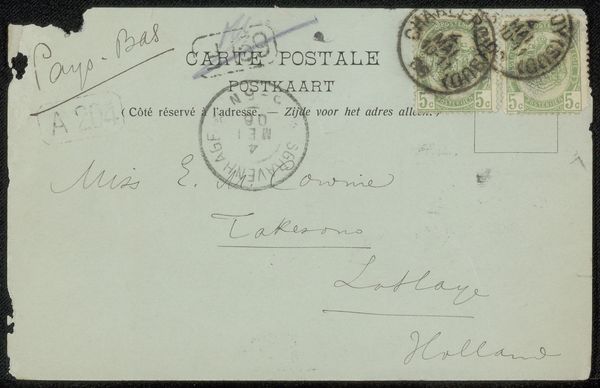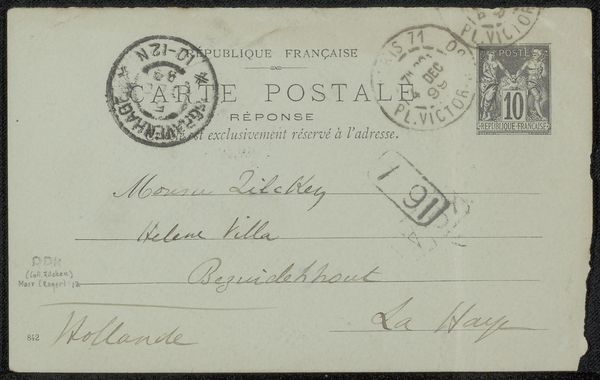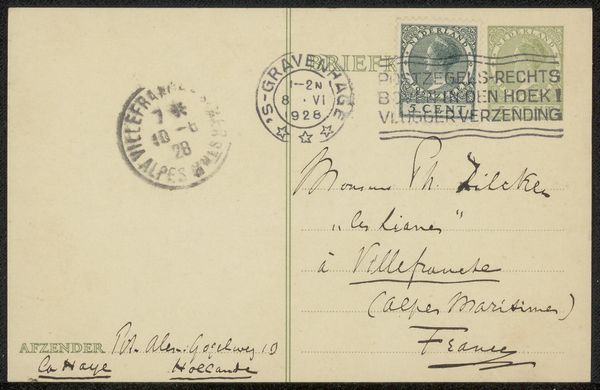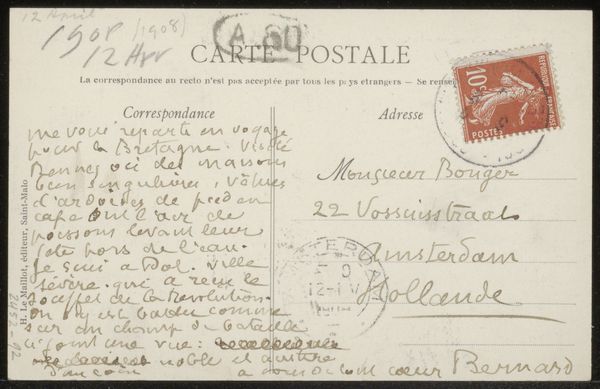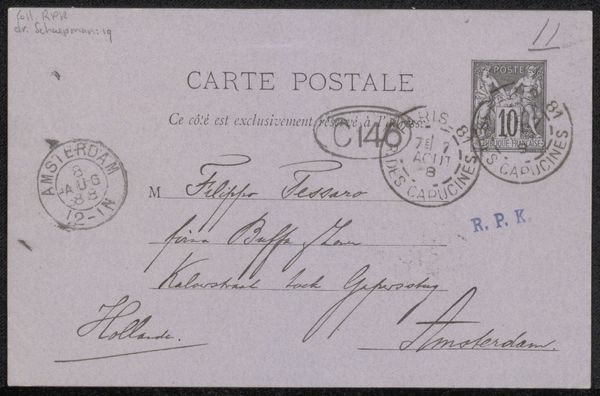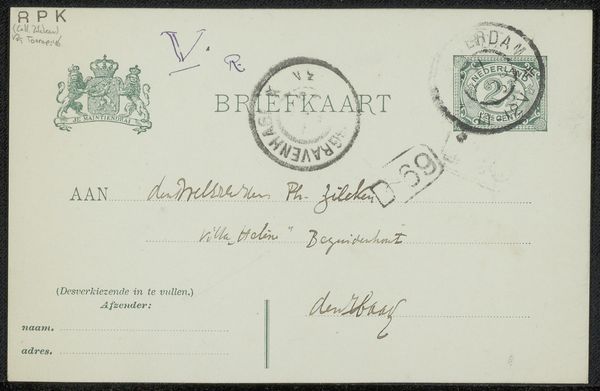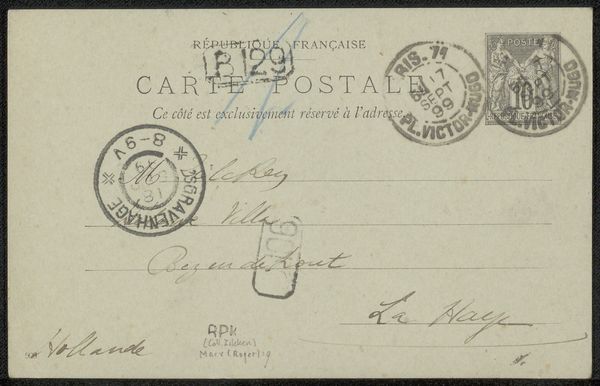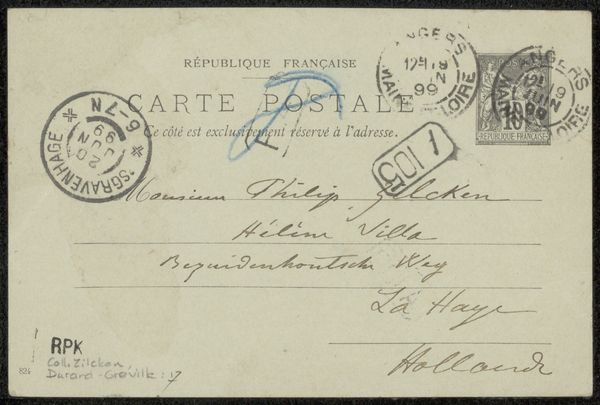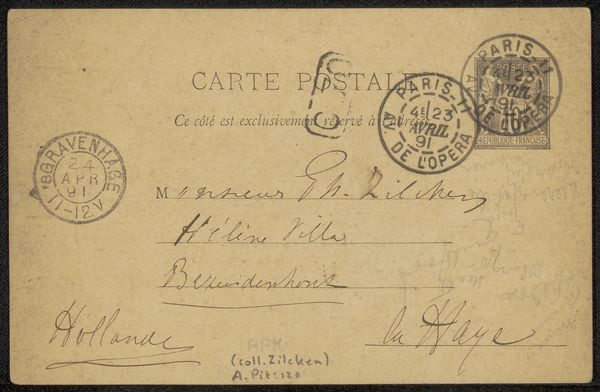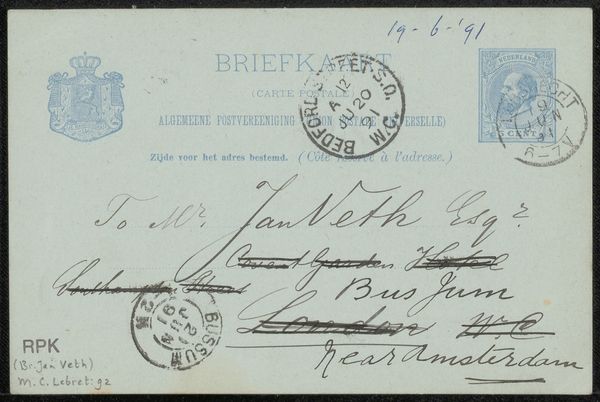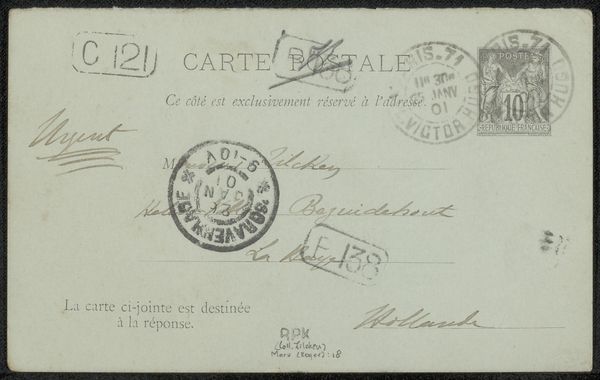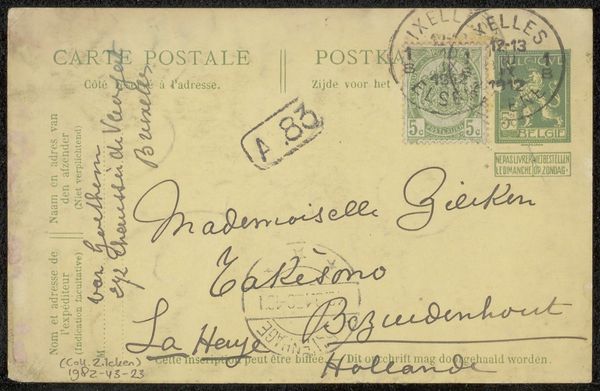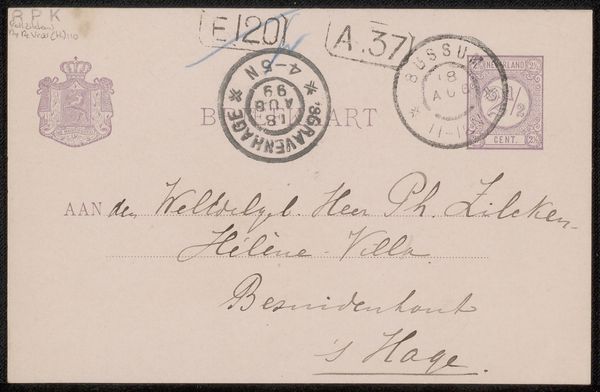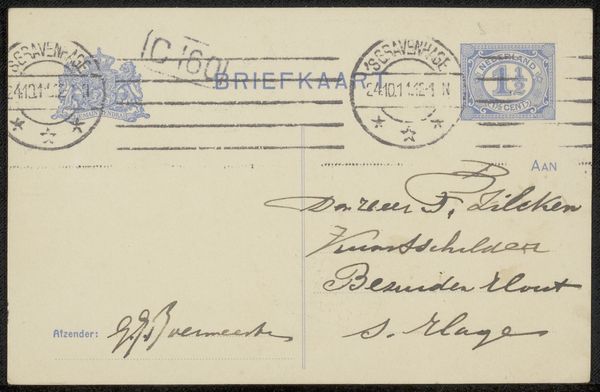
drawing, print, paper, photography, ink
#
drawing
# print
#
pen illustration
#
pen sketch
#
hand drawn type
#
paper
#
photography
#
personal sketchbook
#
ink
#
ink drawing experimentation
#
pen-ink sketch
#
pen work
#
sketchbook drawing
#
storyboard and sketchbook work
#
sketchbook art
Copyright: Rijks Museum: Open Domain
Curator: We’re looking at a piece simply titled "Briefkaart aan Philip Zilcken," dating from before 1899, housed here at the Rijksmuseum. Editor: My first impression? It feels very ephemeral, like a fleeting moment captured. It's the back of a postcard, with blurred postal stamps and handwritten text. Curator: Precisely. It’s a peek into a personal exchange, rendered in ink on paper, bearing the marks of its journey through the postal system. The paper itself speaks to accessibility and everyday use, the very point of postcards as both visual documents and quick communication. Editor: Absolutely. I’m immediately struck by the address scrawled on it, indicating a specific recipient and place. Consider the social context – corresponding via postcard involved a certain level of privilege, even access to literacy and the means of procuring such materials. Who was this Philip Zilcken, and what might their relationship reveal about the artwork's cultural relevance? Curator: Zilcken was a contemporary and fellow artist of Roger Marx who presumably acquired the card later. What interests me particularly are the marks and stains upon it. The ink and paper choice reflect the cost and manufacturing standards available in France at the time. Note how it's almost an accidental collage of official postal markings and private communication. Editor: I see how that layering creates a narrative in itself – official versus personal, public versus private. Were such cards considered throwaway items at the time or preserved more deliberately? This tension speaks to how we value labor and materiality today, prompting considerations about what we deem worthy of artistic preservation. Is it enough to archive and consider art that emerges in social margins or that of ordinary folk like Zilcken. Curator: It's a potent reminder of how material culture provides entry points for these narratives to intersect. This modest postcard, through its composition, becomes an index of a moment, a location, a relationship. Editor: It is certainly making me think about the relationship between these two individuals, Marx and Zilcken, and broader social networks. Thanks. Curator: My pleasure. It’s remarkable how much such a simple, functional object can convey, don't you think?
Comments
No comments
Be the first to comment and join the conversation on the ultimate creative platform.
